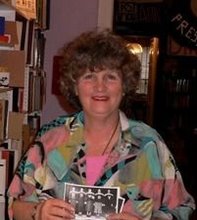Hannah speaks: And here is what I wrote as I came back from our one day trip south to Gaza. Of course, we were not allowed in and we could only demonstrate in front of an amazing grey wall with dogs of the guards barking at us. There were about 1000 people, men and women, Palestinians and Jewish.
"I have just returned from our demonstration near the northern part of the Gaza strip. The food we brought over was of course only a token, but for those at the demonstration, both Jewish and Palestinians in Israel, it was important to convey our protest against "our" government. Anyone should ring the alarm where ever they are to the situation by which Israel is cruelly disconnecting a million and a half Palestinians from their basic facilities such as electricity and water. The story of a friend who gave birth in Gaza where she could not stay in the hospital a minute longer after the birth itself and when she came home, there was no water nor heating demonstrates beyond everything the utter stupidity and cruelty of the situation. Let us tell these stories, let us talk to anyone who cares to listen, let us say out loud that this is a terrible punishment for the Palestinians and it does not serve any useful purpose for Israel.
When you take a shower, when your house is warm and you have food and your refrigerator is working and your food can be cooked, when your computer is working and you can hear music, think about those in Gaza who cannot do all this just because Mr. Barak, the defense minister of Israel, decided to disconnect all this area from the pipe line. Think about the people of the Israeli town of Shederot who have been bombed by Kassam missiles for such long time. Does it make their lives safer because Palestinians do not have electricity or water? Because they are living on 2$ a day? Call a politician in your area, write a letter to the editor, collect donations. Spread the stories. Don't let this happen because Israel, the fourth largest military power in the world, has to defend itself. The only defence for Israel is to get back to its original size and let the Palestinians achieve freedom.
There are many ways to achieve peace, none of them is violent.
Yours, Hannah
I have not written--I have watched and read and listened. I have seen the same images many of you have--women, men, on foot, on donkeys, pouring out of the prison of their home, into the streets of Egyptian border towns, frantic moments of human desire, for sweets, for cabbages, for medicine, for cigarettes, for breaths of air that seem like freedom. "Ameera, 24, texts her husband to ask if there is anything he wants brought back from Egypt. 'Oh!,' she says suddenly in a quiet happy voice, surveying the pretty vista of open fields, without walls or boundaries that cannot be crossed without risk. 'This is my first time out of Gaza.'"(The Guardian, Sunday, January 27, 2008) Never before has it seemed so important to me to carry voices, to call attention to other stories, to other faces of nations, to other bodies. I am so tired of the one conversation, the one image of men in suits, of the armored or punishing national body.
I think of Hannah and her friends, on that rainy trip, standing for hours outside the wall--"at some stages in the preparations for the aid convoy to Gaza, it was proposed that the Israelis would stand on a hillside overlooking the Gaza strip and the Palestinians come to a nearby field on their side of the border, so that people on both sides could see each other; this creative idea was foiled by the army declaring this same hill 'a closed military zone' and surrounding it with barbed wire" (Adam Keller, The Other Israel, January 28, 2008)--of the body of Hedy Epstein, a Holocaust survivor, stripped searched by the Israeli airport security forces in the hopes she would not return to the Jewish homeland with her embarrassing politics, now on her way to Gaza aboard a relief ship. "I would like to dedicate these words to the children of Gaza, whose parents cannot protect them or send them away to safety as my parents did when they sent me to England in May 1939 on a Kindertransport." ("An interview with Hedy Epstein, "What is the Lesson to be Learned from the Holocaust?" by Silvia Cattori, January, 11, 2008). I have all these papers, all these articles, telling of other bodies, other voices, organizations, groups of people, Palestinian, Israeli, American, falling over my computer--thousands and thousands of people trying to be heard, to break through the walls of media silence, of national and community assumptions, of old opinions and teary nostalgias--but only you and you and you can end this one way conversation. Just know that when you do, when you start to ask where are the peace makers, where are the rooms where Palestinians and Jews sit together and talk and plan for another kind of day, you too will find the vista broad and full of promise.

No comments:
Post a Comment